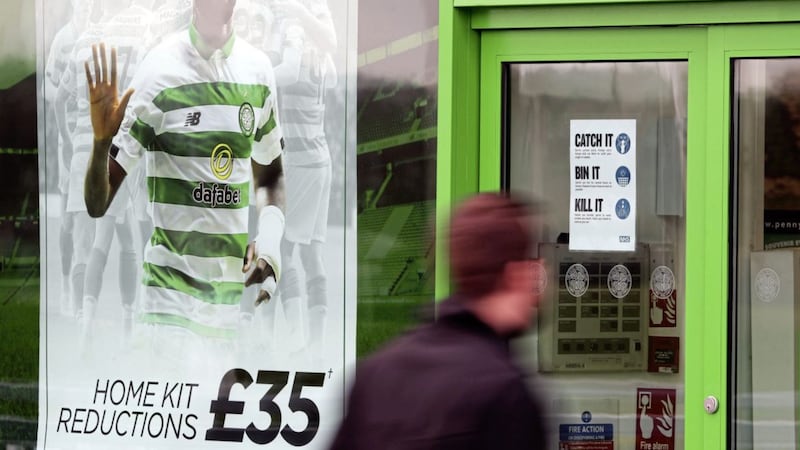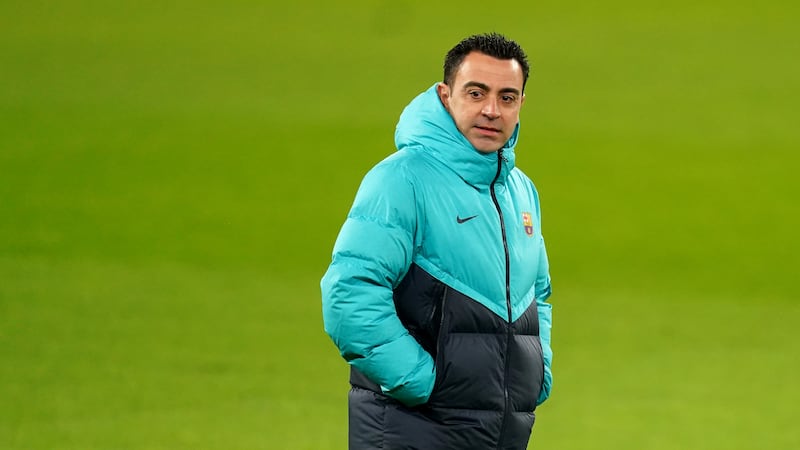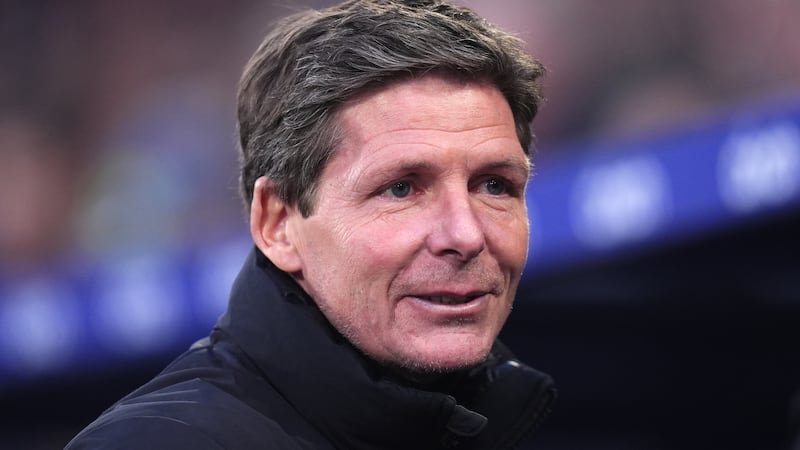NO ball games here. Nor there, nor almost anywhere, for weeks to come. At least.
Coronavirus’s effect on sport spread significantly yesterday (Friday the 13th), notably with the confirmation of the suspension of top level soccer in England, Scotland, and Northern Ireland – and the cancellation of The Masters in golf.
The latter was due to commence at the Augusta course on April 9, by which time the soccer authorities in Britain hope to be able to resume their seasons, with Saturday April 4 the earliest anticipated date for any return to action in England; the Scottish delay is indeterminate, “until further notice”.
On the wider European scene, Uefa has postponed all next week’s games in the Champions League and Europa League, and delayed the draws for the quarter-finals of those competitions, which were due to take place next Friday.
Horseracing will continue in Ireland but will not be open to the public, aligned with the Irish government instruction to limit external gatherings to fewer than 500 people up until March 29.
However, there remain doubts over the Grand National, set for April 4 at Aintree, while the start of the Formula One season may be delayed until June with the number of Grands Prix reduced.
This weekend’s remaining Six Nations match, between Wales and Scotland, set for today in Cardiff, was belatedly called off in an attempt to slow the spread of the virus.
Belfast boxer Michael Conlan’s WBO InterContinental Featherweight title fight against Colombia’s Belmar Preciado, which was to go ahead at Madison Square Garden, New York on St Patrick’s Day behind closed doors, was then put off.
The list of cancellations and postponements grew and grew: in cricket, England's upcoming Test series against Sri Lanka was postponed, while all remaining matches in the Elite Ice Hockey League season were cancelled.
The suspension of soccer became inevitable, despite a seeming reluctance from the Premier League to make that call.
Once news broke that Arsenal head coach Mikel Arteta had tested positive for the virus, then Chelsea’s England international Callum Hudson-Odoi, the knock-on effect to opponents with whom those clubs had recently come into contact built up the pressure for postponements.
Everton, who were due to host arch-rivals Liverpool on Monday night, announced that a first-team player had gone into self-isolation and that all staff, including the rest of the playing squad, have been told to avoid all club sites.
Liverpool boss Jurgen Klopp issued a statement of support, saying: “Today’s decision and announcement is being implemented with the motive of keeping people safe. Because of that we support it completely.
“We have seen members of teams we compete against become ill. This virus has shown that being involved in football offers no immunity. To our rival clubs and individuals who are affected and to those who later will become so, you are in our thoughts and prayers.”
With the Reds agonisingly close to sealing a first title for 30 years, the German expressed hope about being crowned champions:
“None of us know in this moment what the final outcome will be, but as a team we have to have belief that the authorities make decisions based on sound judgement and morality.”
Yet he made clear that public health mattered most: “First and foremost, all of us have to do whatever we can to protect one another. In society I mean. This should be the case all the time in life, but in this moment I think it matters more than ever.
“I’ve said before that football always seems the most important of the least important things. Today, football and football matches really aren’t important at all.
“Of course, we don’t want to play in front of an empty stadium and we don’t want games or competitions suspended, but if doing so helps one individual stay healthy - just one - we do it no questions asked.
“If it’s a choice between football and the good of the wider society, it’s no contest. Really, it isn’t.”
Celtic are well clear in Scotland too, aiming for a ninth consecutive crown, and their boss Neil Lennon believes they will be recognised as title-holders if the season cannot be concluded on the pitch:
"We would be the champions and rightly so. We are 13 points clear. Dundee United, they would have to be promoted as well.
"Certainly, if you are talking about the Armageddon of the league being cancelled or stopped, it should go on the average points total which would make us clear champions and rightly so.
"We are over 30 games into the season, they are not going to take that away from us.
"Are they going to do that to Liverpool? I would doubt it very much.”
UEFA’s planned teleconference of all members associations next Tuesday may provide the British leagues with some wriggle room. If a decision is taken to postpone Euro 2020 until the summer of 2021 it creates the possibility of domestic competitions being completed in June and even July if necessary.
The St Patrick’s Day discussions will also look at how, if at all, the Champions League and Europa League competitions can be completed.
Dropping down to single-leg ties could be one option to speed the competition up on a one-off basis, but UEFA will be keen for its member associations to complete their domestic competitions so that there is no knock-on impact to the 2020-21 Champions League and Europa League.
Formula One bosses are set to delay the start of the new season until June after the Bahrain and Vietnam Grands Prix were postponed.
The sport's traditional curtain-raiser at Melbourne's Albert Park, due to take place this weekend, was officially axed following McLaren's withdrawal from the event after one of their mechanics tested positive for coronavirus.
The Dutch Grand Prix, the first in Holland for 36 years, is due to take place on May 3, but that might now be moved to August, with the sport's customary summer break scrapped. As many as 18 races might be staged in six months.
The historic Monaco Grand Prix, set for May 24, could become the sport's biggest casualty, while there may also be no room for the races in Bahrain and Spain. There are no plans for the round here in Melbourne to be rescheduled for later in the year.
"The scale of this is massive," said F1 motorsport boss Ross Brawn. "We want to try and build the Formula One season back up, but we have to be realistic when that can start again.
"The teams survive on their funding from races. Each race you lose, it has an impact.
"There is a strong resilience in Formula One and we have got plans to rebuild the season and try to accommodate as many of the lost races.
"People need to show tolerance in terms of how we build the rest of the year, and the teams are in the right place to understand this necessity."








